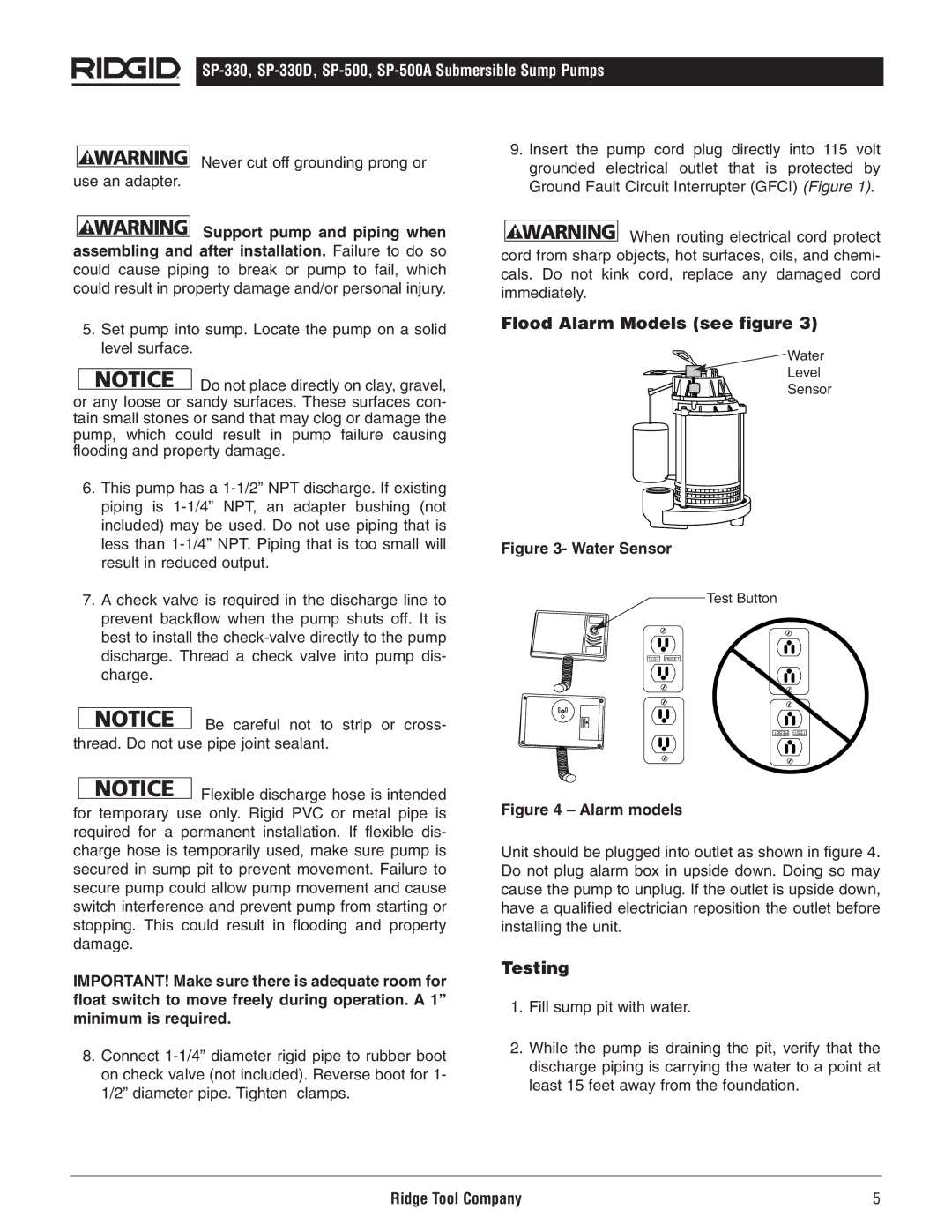SP-330D, SP-330, SP500A, SP-500 specifications
RIDGID is renowned for its innovative and high-performance plumbing and mechanical tools. Among its impressive lineup, the RIDGID SP-500, SP-330D, SP-330, and SP500A stand out as exceptional options for professionals in the field. These models cater to various needs with features and technologies designed for efficiency, reliability, and ease of use.The RIDGID SP-500 is a powerful and versatile pipe cutter that features a robust design, allowing it to handle pipes up to 5 inches in diameter. Its durable construction ensures long-lasting performance, even in demanding environments. The SP-500 utilizes a patented anti-friction roller system, which enables smooth and precise cutting, minimizing the effort required. This model also incorporates an adjustable feed mechanism, allowing for quick adaptation to different pipe sizes while maintaining consistent cutting depth.
The SP-330D is designed specifically for handling drainage and vent piping. One of its standout characteristics is its compact design, which allows for easy maneuverability in tight spaces. The dual-cutting blade technology enhances cutting efficiency, which is essential for maintaining productivity on the job. This cutter can efficiently tackle various materials, from PVC to cast iron, making it a versatile addition to any toolkit.
In contrast, the RIDGID SP-330 offers similar performance but is aimed at a more extensive range of applications. It features a user-friendly design designed for maximum comfort and control. The ergonomic handle reduces hand fatigue during prolonged use. Like the SP-500, it includes the anti-friction roller system that provides superior cutting capabilities, helping professionals achieve precise results every time.
The SP500A is an advanced model equipped with the latest technologies to ensure optimal performance. The built-in LED indicator lights illuminate the work area, making it easier to see what you’re working on, even in low light conditions. Its lightweight construction is complemented by robust materials, ensuring that it remains durable while being easy to handle. The SP500A also features quick-release jaws for fast and efficient blade changes, which is a significant time-saver during work.
Overall, the RIDGID SP-500, SP-330D, SP-330, and SP500A offer a broad spectrum of essential features and technological advancements tailored for plumbing professionals. With their impressive cutting efficiencies, user-centric designs, and robust constructions, these tools exemplify the excellence that RIDGID is known for in the industry. Whether you need a precise cutter for PVC, cast iron, or other materials, these models provide reliability and functionality that can enhance productivity on every job site.

